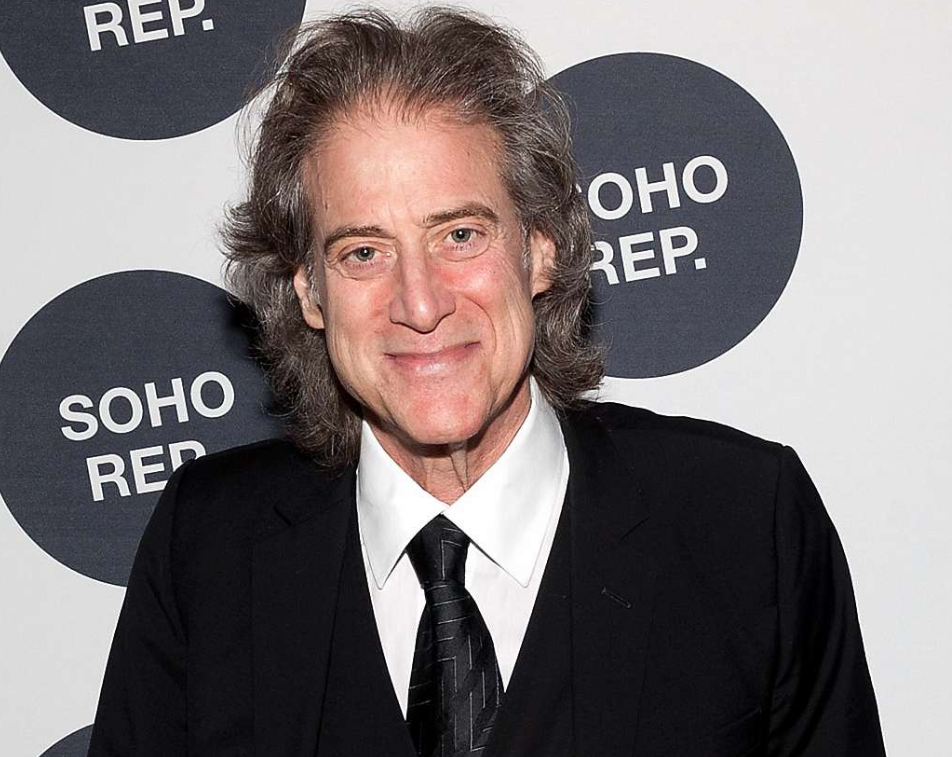Richard Lewis: Renowned American Stand-Up Comedian
Richard Lewis, a celebrated American stand-up comedian, is synonymous with intelligent humor and wit. Born on June 29, 1947, Lewis’ comedic journey began in the 1970s, and he soon became a household name, thanks to his distinctive style and knack for observational humor. He is best known for his self-deprecating humor and his ability to turn his personal trials and tribulations into laughter-inducing material for his audience. Lewis’ comedic genius extends beyond the stage, as he has also made a successful transition to the small screen.
He has appeared in several popular television shows, including “Curb Your Enthusiasm,” where his portrayal of a version of himself garnered critical acclaim. He has also dabbled in film, with roles in movies such as “Robin Hood: Men in Tights” and “Leaving Las Vegas.” His unique style and delivery, coupled with his ability to connect with his audience on a personal level, have made him a revered figure in the world of stand-up comedy.
However, Lewis’ journey has not been devoid of struggles; his battles with alcoholism and his subsequent sobriety have added a different layer to his comedy, making it more relatable and poignant. Despite the hurdles, Richard Lewis’ contribution to the field of comedy remains unparalleled, and he continues to entertain audiences with his sharp wit and humor.

Early Life and Education
Early life and education are fundamental aspects that greatly shape an individual’s future. From infancy, an individual begins to absorb information from their surroundings, with their family playing a pivotal role in their initial learning process. However, the formal initiation into the world of knowledge truly begins with education. The formative years spent in school not only instill essential academic skills like reading, writing, and arithmetic, but also cultivate social skills, critical thinking, creativity, and a sense of self-discipline.
Education in early life is not limited to the confines of a classroom. It also extends to extracurricular activities and hobbies which contribute to the all-round development of a child. These activities can help hone a child’s talents and interests, which may later evolve into career paths or lifelong passions. The active involvement of parents and teachers in guiding and supporting a child’s educational journey is critical to their success.
In the early stages of life, children are like sponges, eager to learn and adapt. Therefore, it is crucial to provide them with a nurturing, stimulating environment to foster their intellectual growth. Early education helps to lay a sturdy foundation for advanced learning and personal development. It not only equips individuals with the necessary skills and knowledge needed to navigate through life but also helps in shaping their personality, attitudes, and values.
In our modern society, there is an increased emphasis on the importance of early education. From preschool to primary and secondary schooling, each phase is designed to build on the previous one, ensuring a smooth transition and continuous learning process. The role of education in early life cannot be overstated; it has the power to influence the course of a person’s life, enabling them to reach their full potential and contribute positively to society.
Career Highlights
Career highlights are significant achievements within one’s professional journey that stand out due to the level of accomplishment, innovation, or impact they have had. These can include promotions, successful projects, awards, or recognition for exceptional work. Career highlights are often the most memorable and rewarding moments in a professional’s life, offering a sense of satisfaction and validation of their skills and efforts. They serve as milestones that reflect the advancement and growth of an individual in their chosen field.
For instance, a scientist may consider the publication of their research in a prestigious journal to be a career highlight. Alternatively, a teacher may regard the moment when a former student credits them for their success as a pinnacle point in their profession. In the corporate world, leading a team to complete a challenging project under strict deadlines and within budget constraints could be viewed as a major accomplishment.
Career highlights are not merely about personal glory or financial rewards. They often have a broader impact, contributing to the betterment of a team, an organization, or even an entire industry. They can also influence and inspire others in the field, setting standards of excellence and driving innovation.
Moreover, these highlights play a crucial role in shaping a professional’s identity and reputation. They are typically showcased in resumes, portfolios, or during job interviews to demonstrate an individual’s capabilities, expertise, and value to potential employers. Career highlights, therefore, are more than just points of pride; they are a testament to a professional’s dedication, perseverance, and success in navigating the complexities and challenges of their career path.

Stand-Up Comedy and Live Performances
Stand-up comedy and live performances provide a unique and riveting form of entertainment that thrives on spontaneity and audience interaction. This dynamic genre of performance art creates an intimate setting where comedians can express their humorous insights, satirical commentary, and amusing narratives. Stand-up comedy is a blend of storytelling, one-liners, and observational humor that is primarily delivered through a monologue. The comedian is solely responsible for captivating the audience, using their comedic talents, timing, and charisma.
Live performances add an element of unpredictability, as the comedian performs in real-time, without the safety net of post-production editing. This immediacy elevates the thrill of the performance, as anything could happen – an unexpected reaction, a well-timed heckle, or a completely improvised segment. This fluid dynamic between performer and audience is a defining aspect of stand-up comedy, setting it apart from other forms of comedic entertainment.
Stand-up comedy and live performances also play a significant role in societal discourse. They provide a platform for performers to challenge prevailing norms, explore diverse perspectives, and stimulate critical thinking through humor. Comedians often discuss topical issues, personal experiences, and cultural differences, reshaping them into digestible and hilarious content. They hold up a mirror to society, inciting laughter and thought in equal measure.
However, stand-up comedy is not without its challenges. Comedians face the daunting task of creating fresh, compelling content that resonates with their audience, while balancing sensitivity and humor. The live nature of stand-up also means they must be adept at handling hecklers and navigating unpredictable situations. Despite these hurdles, stand-up comedy and live performances continue to thrive, offering a unique and engaging form of entertainment that celebrates human connection, shared experiences, and the universal language of laughter.
Notable Appearances and Contributions
Notable appearances and contributions play a pivotal role in various domains of society, including arts, culture, science, and politics. These are instances where individuals, through their exceptional talents, skills, or wealth, leave an indelible mark on the world. Such contributions could be in the form of pioneering research, groundbreaking performances, innovative ideas, or significant donations.
For instance, in the realm of science, individuals like Albert Einstein and Marie Curie made notable appearances with their revolutionary theories and discoveries that transformed the way we perceive and understand our universe. In the sphere of arts and culture, figures like William Shakespeare, Beethoven, and Picasso have made invaluable contributions, enriching the world’s cultural heritage and influencing generations of artists and audiences alike. Philanthropists like Bill Gates and Warren Buffet have made significant financial contributions towards addressing global issues such as poverty, health, and education. These notable appearances and contributions not only impact the immediate context but also have far-reaching implications for future generations.
They inspire and motivate others to strive for excellence, challenge conventional wisdom, and contribute positively to society. Notable appearances and contributions are a testament to human potential and the extraordinary feats that can be achieved with passion, dedication, and a desire to make a difference. They remind us that each one of us, through our unique talents, skills, and resources, has the potential to make a significant impact on the world around us.

Personal Life and Background
Personal life and background are integral aspects that shape an individual’s identity, perspectives, and behaviors. These two elements, intertwined in countless ways, contribute towards defining the unique traits, characteristics, and experiences of a person. Personal life refers to the activities, relationships, hobbies, and private experiences that an individual engages in outside the professional sphere. It encompasses various dimensions such as family life, leisure activities, friendships, romantic relationships, and personal development endeavors.
On the other hand, an individual’s background refers to their past experiences, including their upbringing, education, culture, socio-economic status, and environment. It provides the basis upon which their personal life evolves. The background plays a pivotal role in shaping an individual’s values, beliefs, perceptions, and attitudes that subsequently influence their choices and actions in their personal life.
For instance, a person raised in a multicultural environment may develop an appreciation for diverse cultures and may choose to travel widely in their personal life. Similarly, someone from a humble economic background might develop resilience and a strong work ethic, which could reflect in their personal life through their commitment to self-improvement or community service.
In a broader societal context, understanding a person’s personal life and background can promote empathy, respect, and tolerance. Recognizing the interplay of these two aspects can help in comprehending why people behave the way they do and respond in certain ways to different situations. This understanding forms the basis for meaningful interpersonal relationships and contributes to a harmonious, inclusive society. Therefore, personal life and background are not just personal constructs, but they also hold social significance.
Television Appearances and Series
Television appearances and series have significantly transformed the entertainment landscape over the years. They serve as an avenue for actors, celebrities, and other personalities to showcase their talents, express their views, and engage with their audiences. Television series, in particular, have evolved into a powerful storytelling medium, with their episodic format allowing for intricate plot development and character progression that can captivate audiences over extended periods.
The rise of various television networks has introduced a plethora of genres, each catering to different audience preferences. From drama series that tug at the heartstrings, comedy series that evoke laughter, to reality shows that provide a glimpse into the lives of others, television series offer diverse content that can cater to a broad spectrum of viewers.
Moreover, television appearances have become a crucial part of a personality’s career, often serving as a springboard for fame and recognition. Celebrities might appear on talk shows, reality programs, or even as guest stars in a series, providing them with the opportunity to reach a larger audience and elevate their public image.
The advent of digital platforms has also revolutionized the way audiences consume television series. Streaming services have enabled viewers to watch their favorite shows at their convenience, making television series more accessible than ever. Binge-watching, where viewers watch multiple episodes of a series in one sitting, has emerged as a common practice among audiences.
Television appearances and series have undeniably made a significant impact on popular culture. They not only entertain but also foster a sense of community among viewers who share similar interests. Despite the rise of other forms of media, television continues to hold a prominent place in the entertainment industry, with its ability to engage audiences and bring stories to life.
